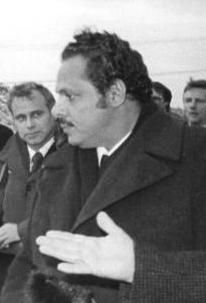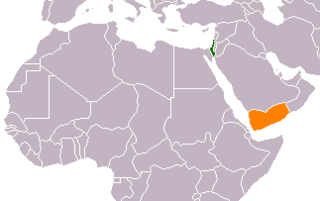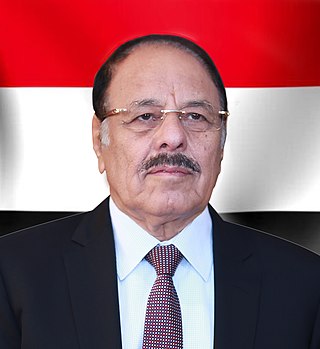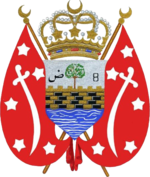These are lists of incumbents, including heads of states or of subnational entities.

The Politics of Yemen are in an uncertain state due to the Houthi takeover in Yemen. An armed group known as the Houthis or Ansar Allah seized control of the Northern Yemeni government and announced it would dissolve parliament, as well as install a "presidential council", "transitional national council", and "supreme revolutionary council" to govern the country for an interim period. However, the deposed president, Abdrabbuh Mansur Hadi, has declared he is still in office and is working to establish a rival government in Aden.

The prime minister of the Republic of Yemen is the head of government of Yemen.

The Yemen Arab Republic, also known simply as North Yemen or Yemen (Sanaʽa), was a country from 1962 to 1990 in the northwestern part of what is now Yemen. Its capital was at Sanaa. It united with the People's Democratic Republic of Yemen on 22 May 1990 to form the current Republic of Yemen.

The prime minister of the Yemen Arab Republic was the head of government of that country in what is now northern Yemen. The Prime Minister was appointed by the President. There were twelve prime ministers of North Yemen.

Ali Nasir Muhammad Al-Husani is the former leader of South Yemen serving as General Secretary of the Yemeni Socialist Party between 1980 and 1986. He was twice president of South Yemen and once the Prime Minister. He served as the Prime Minister from 2 August 1971 until 14 February 1985 and as Chairman of the Presidential Council from 26 June 1978 until 27 December 1978.

Yemeni unification took place on May 22, 1990, when the area of the People's Democratic Republic of Yemen was united with the Yemen Arab Republic, forming the Republic of Yemen.
The modern history of Yemen began with the withdrawal of the Ottoman Empire. In 1839 the British set up a protective area around the southern port of Aden and in 1918 the northern Kingdom of Yemen gained independence from the Ottoman Empire. North Yemen became a republic in 1962, but it was not until 1967 that the British Empire withdrew from what became South Yemen. In 1970, the southern government adopted a communist governmental system. The two countries were formally united as the Republic of Yemen on May 22, 1990.

The following outline is provided as an overview of and topical guide to Yemen:

The Yemeni Civil War was a civil war fought between the two Yemeni forces of the pro-union northern and the socialist separatist southern Yemeni states and their supporters. The war resulted in the defeat of the southern armed forces, the reunification of Yemen, and the flight into exile of many Yemeni Socialist Party (YSP) leaders and other separatists.

There are no diplomatic relations that exist between Israel and Yemen and relations between the two countries are very tense. Yemen refuses the admission of people with an Israeli passport or any passport with an Israeli stamp, and the country is defined as an "enemy state" by Israeli law.

Ali Mohsen Saleh al-Ahmar, sometimes spelled "Muhsin", is a Yemeni military officer who served as the vice president of Yemen from 2016 to 2022, when he was dismissed by President Abdrabbuh Mansur Hadi, who transferred the powers of the president and vice president to the Presidential Leadership Council. He is a general in the Yemeni Army and was the commander of the northwestern military district and the 1st Armoured Division. He played a leading role in the creation of the General People's Congress.

Syria and Yemen generally enjoy good relations. Both countries currently have ongoing civil wars, the Syrian Civil War and the Yemeni Civil War.

The Houthi takeover in Yemen, also known as the September 21 Revolution, or 2014–15 coup d'état, was a popular revolution against Yemeni President Abdrabbuh Mansur Hadi led by the Houthis and their supporters that pushed the Yemeni government from power. It had origins in Houthi-led protests that began the previous month, and escalated when the Houthis stormed the Yemeni capital Sanaa on 21 September 2014, causing the resignation of Prime Minister Mohammed Basindawa, and later the resignation of President Abdrabbuh Mansur Hadi and his ministers on 22 January 2015 after Houthi forces seized the presidential palace, residence, and key military installations, and the formation of a ruling council by Houthi militants on 6 February 2015.

Ahmad Awad bin Mubarak is a Yemeni politician who is the current Foreign Minister of Yemen. He was previously the Ambassador of Yemen to the United States.

The Supreme Political Council is a largely unrecognised executive body formed by the Houthi movement and the General People's Congress (GPC) to rule Yemen. Formed on 28 July 2016, the presidential council consists of 10 members and was headed by Saleh Ali al-Sammad as president until his death from a drone air strike on 19 April 2018 with Qassem Labozah as vice-president. The territory that it rules consists of the former North Yemen, which united with South Yemen in 1990.
This page is based on this
Wikipedia article Text is available under the
CC BY-SA 4.0 license; additional terms may apply.
Images, videos and audio are available under their respective licenses.













